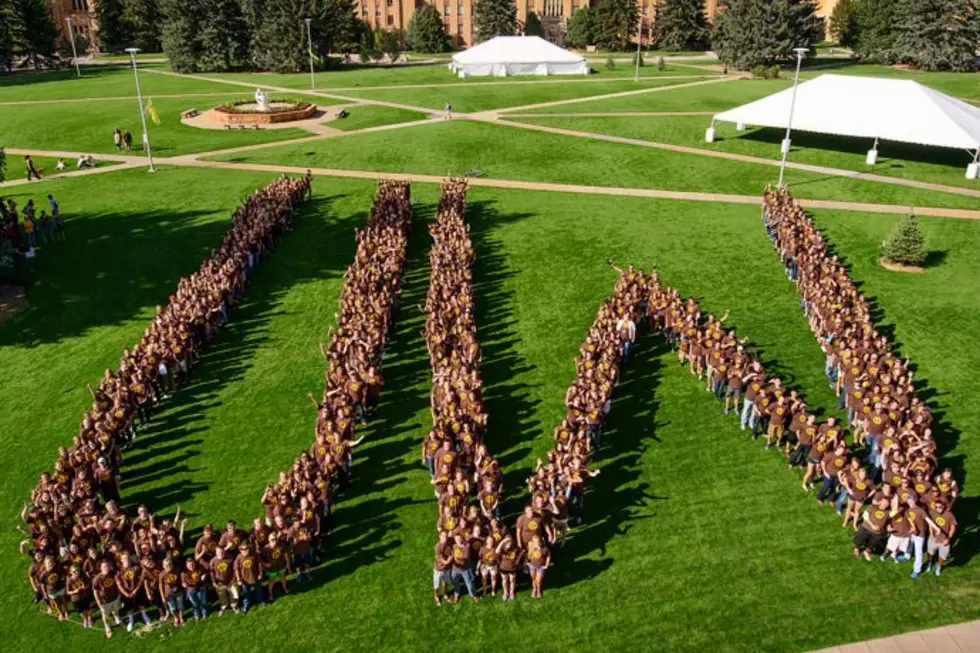
40 Years Ago: ‘M*A*S*H’ Goes Out With a Bang
The final episode of M*A*S*H took the form of a 150-minute movie that became one of the most important moments in American television history.
Aired on Feb. 28, 1983, Goodbye, Farewell, and Amen brought to a close a beloved and monumentally influential series. The episode was watched by some 105 million people, which was nearly half of the U.S. population of 133 million at the time. M*A*S*H set a record that still stands for the largest viewership of a TV series finale.
Goodbye, Farewell, and Amen also served as perhaps the high-water mark of a time when a majority of Americans watched the same television and movies, listened to the same music, and got their information from the same news programs.
When the series began 11 years earlier in 1972, the world was a much different place. The Vietnam War was still raging, and Hollywood was in the middle of perhaps its most wide-open period ever: the old studio system had been torn down, and young directors like Francis Ford Coppola, William Friedkin, Peter Bogdanovich, and Robert Altman were making movies with huge budgets and few creative limitations. CBS decided to try to turn one of these films – 1970's M*A*S*H, Altman's film about a combat surgical unit on the front lines of the Korean War – into a sitcom.
The network hired producer Gene Reynolds and writer Larry Gelbart to bring the film to the small screen, with the rather misguided hope that the two would keep things light and comedic, even though this was in direct contradiction to Altman's pitch-black comedy.
Instead, they wrote a show full of scenes that took place during bloody surgeries, showing doctors whose only recourse for combating the stress of their lives was getting drunk, and featuring storylines about trauma, death, and madness. And they also managed to make it hilarious.
Watch 'M*A*S*H' Cast and Crew Discuss Its Bittersweet End
It was a potent brew, and it took audiences a while to adjust to it. After almost being canceled at the end of the first season, M*A*S*H ensconced itself firmly in the Top 10 shows of the year for virtually the entirety of its run. Everyone involved with the production pointed to its irreverence and breaking of norms as the primary secret of its success: Gelbart "made the conscious decision to place serious and comedic stories side by side," series writer Elias Davis told the Hollywood Reporter in 2018, noting that this was unheard of in American television at the time.
Alan Alda, who played surgeon "Hawkeye" Pierce in every one of the show's 11 seasons, said this refusal to play by the rules extended from the on-screen content to the way the principals interacted with executives at CBS. They decided to censor a line in one of the show's early episodes with the excuse that "you can’t say the word 'virgin.' That was forbidden," Alda told The New York Times in 2022. So the following week, Gelbart wrote a scene in which a character is asked where he's from and says "The Virgin Islands."
This upending of staid norms proved to be a perfect match for the turbulent '70s, and by the time the show came to the end of its run in 1983, M*A*S*H had become an American institution. Still, a question loomed: How do you end a series that is so immensely popular and also deals with the such complicated subject matter? By that point, Alda had assumed a position of leadership at the show, writing and directing numerous episodes. He and the other writers came up with a simple solution. They'd go big. The finale, with Alda co-writing and directing, would stretch the length of five regular episodes. Goodbye, Farewell, and Amen not only brought each of the characters' storylines to a close but also included a movie-length meditation on the horror and trauma of war.
The episode begins with Hawkeye in a psychiatric hospital after a mental breakdown. He tells psychiatrist Sidney Freedman (Allan Arbus) about a recent trip to the beach that he took with some of the other doctors and nurses from the hospital unit. On the way back, they were almost captured by an enemy patrol, and a refugee they'd picked up had to smother a chicken to keep it quiet so they wouldn't be discovered and killed.
When the 'M*A*S*H' Cast and Crew Said Their Final Goodbyes
Goodbye, Farewell, and Amen then moves forward with the usual M*A*S*H mixture of hijinks and tragedy. A tank is abandoned in the middle of the hospital camp. Some Chinese soldiers who are also musicians are captured, and Major Winchester (David Ogden Stiers) teaches them to play a Mozart piece. Characters begin to discuss their post-war plans as it's revealed that a ceasefire has been announced and the war is ending.
The cross-dressing Sergeant Klinger (Jamie Farr) decides to marry a Korean woman and stay in the country, Col. Potter (Harry Morgan) takes a final ride on his beloved horse, and the men all say goodbye to each other – and to Major Houlihan (Loretta Swit), whom they've tormented, and been tormented by, for so long. Along the way, it's revealed that the Chinese musicians Winchester taught have all been killed in one of the last bombings of the war and that what traumatized Hawkeye was that it wasn't a chicken that the woman in the bus smothered, but her baby.
It was a stunning blend of comedy, tragedy, and serious meditation on the costs of war. By the time Hawkeye and his best friend and fellow surgeon, B.J. Hunnicutt (Mike Farrell) say goodbye at the end, it feels as though not just a television show, but an entire era has been summed up.
And it had been. America survived the trauma of Vietnam, and the tumult of the '70s that followed, and that experience had been captured by a TV show in a way that may never again be repeated. Trying to explain the lasting impact of M*A*S*H, Alda told the Times that the show had been propelled by an acute "awareness that real people lived through these experiences and that we tried to respect what they went through."
But the '80s had arrived. A new moment was dawning, one that would be fun-loving and content to exist for the most part on the surface of things, full of action movies, sitcoms and pop music. The era would eventually slide into a technological explosion that caused the fracturing of audiences into smaller and smaller niches. Decades later, the M*A*S*H finale also remained the only scripted project found in the Top 10 most-viewed TV shows of all time.


